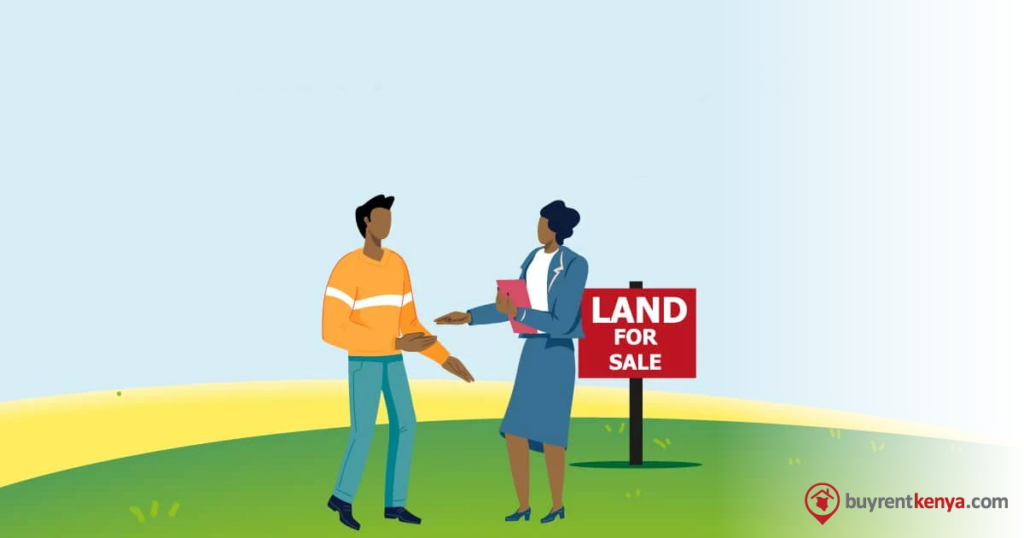Buying land in Kenya is one of the biggest investments that can quickly turn into a very risky endeavor when done without due diligence, writes Lulu Kiritu, Content Manager & Public Relations Specialist at BuyRentKenya.
Kenya’s real estate boom has brought tremendous opportunities, but it has also opened doors for fraudsters and con artists. Without proper research and due diligence, you could easily fall victim to a scam.
Whether you’re a first-time buyer or a seasoned investor, one thing remains true: caution is key. From investing in “too-good-to-be-true” deals to unknowingly purchasing disputed land, many buyers have learned these lessons the hard way.
To help you avoid costly mistakes, here’s a step-by-step guide to buying land in Kenya in 2025.
In this article
ToggleDefine Your Purpose & BudgetChoose the Right LocationIdentify Genuine SellersConduct a Title SearchVisit the Land PhysicallyInvolve a Licensed SurveyorDraft a Sale AgreementPay Through Formal, Traceable ChannelsTransfer OwnershipSecure Your InvestmentThe Right Approach Matters
Define Your Purpose & Budget
Before anything else, be clear on why you’re buying land. Is it for farming, building a family home, setting up a business, or simply speculation? Your purpose will directly shape your budget and choice of location.
In Kenya, land prices vary widely depending on the area — prime urban zones cost much more than rural or peri-urban areas. Once you know your purpose, you can set a realistic budget that not only covers the purchase price but also additional costs such as legal fees, stamp duty, and survey charges.
Choose the Right Location
Location is everything in real estate. Look beyond the price tag and consider accessibility, infrastructure (roads, schools, hospitals, water, electricity), and proximity to urban centers.
Also think long-term: is the area earmarked for future development such as new highways, industrial zones, or commercial hubs? Such projects can quickly raise land value. Striking the right balance between affordability and growth potential is key.
Identify Genuine Sellers
Whether you’re buying from an individual, a company, or through an agent, verify the seller’s credibility. Ask for identification and proof of ownership upfront.
Be wary of brokers who pressure you into making quick decisions. If you’re buying through a company, ensure it’s registered and has a solid track record in real estate.
Conduct a Title Search
To ensure that you do not become a victim of land fraud, ensure that you conduct a title search to verify its authenticity.
Confirm that the seller is the true owner via the Ministry of Lands or Ardhisasa. Additionally, check if the land has any disputes, charges (like bank loans), or caveats. Ensure the details on the title deed match the seller’s ID.
Visit the Land Physically
Never buy land without setting foot on it. Visit the property to confirm its size, boundaries, and accessibility. Check for existing developments or encroachments.
Talk to neighbors, they often know the history of the land and can alert you to any disputes. You should also verify the land’s zoning (agricultural, residential, commercial) at the local county offices.
Involve a Licensed Surveyor
Make sure you involve a licensed surveyor. This is key because a surveyor will confirm whether the land’s beacons are intact and that the size on the ground matches the details in the title deed. This step helps you avoid issues with overlapping or encroached plots.
Though it comes at a cost, hiring a surveyor can save you from expensive legal battles in the future.
Draft a Sale Agreement
Once you’re satisfied with your checks, engage a lawyer to draft a sale agreement. The agreement should outline payment terms, timelines, and each party’s responsibilities.
Make sure it’s properly signed, witnessed, and stamped. This document is your legal protection in case of disputes.
Pay Through Formal, Traceable Channels
When it’s time to pay, avoid paying in cash. Use traceable methods such as bank transfers or lawyer’s escrow accounts. Only release funds once you’ve verified all documents and both parties have signed the agreement.
Transparent transactions protect you from fraud and provide proof of payment if issues arise.
Transfer Ownership
After full payment, the seller should transfer the land title to your name. Lodge the transfer documents at the Ministry of Lands (or through Ardhisasa).
Don’t forget to pay stamp duty. It’s typically 4% of the property value in urban areas and 2% in rural areas. Once processed, you’ll be issued a title deed in your name.
Secure Your Investment
Owning land is one thing, protecting it is another. Fence the property to prevent encroachment and keep all original documents in a safe place.
For extra security, consider registering a caveat on the land, this prevents anyone from transacting with it without your consent.
The Right Approach Matters
Buying land in Kenya is one of the biggest investments that can quickly turn into a risky endeavor when done without due diligence. From defining your purpose and budget to verifying documents and securing your title deed, every step matters.
Don’t rush the process, no matter how attractive a deal may look. Take your time, involve the right professionals, and always prioritize legal and transparent transactions.
With the right approach, buying land in 2025 can move you closer to your dreams, whether that’s building a home, starting a farm, or investing for the future without the stress of costly mistakes.
Lulu Kiritu is a Content Manager & Public Relations Specialist at BuyRentKenya, a real estate firm that connects people to property across Kenya.
